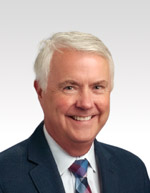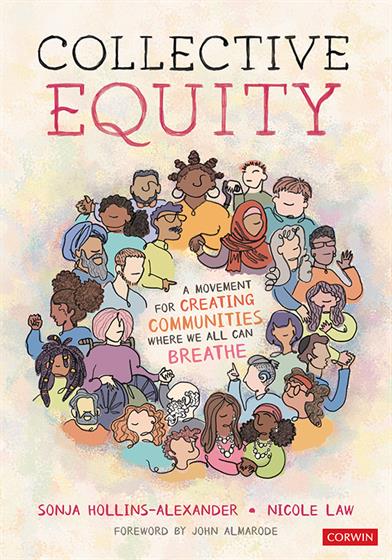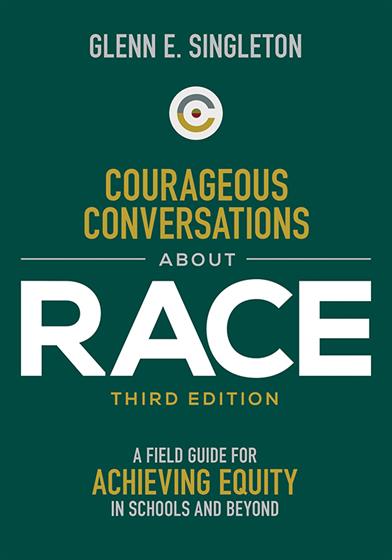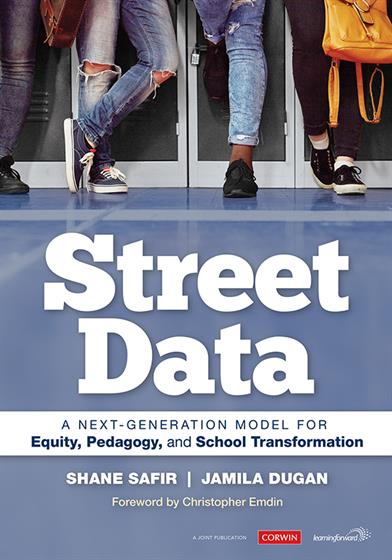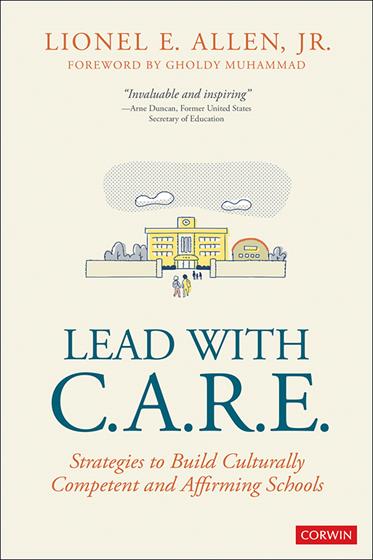Series 7 Leaders Coaching Leaders
[00:00:00.00] [MUSIC PLAYING]
[00:00:00.34] ANNOUNCER: Welcome to Corwin's Leaders Coaching Leaders Podcast, with host Peter DeWitt. This podcast is from education leaders, for education leaders. Every week, Peter and our guests get together to share ideas, put research into practice, and ensure every student is learning not by chance, but by design.
[00:00:19.27] TANYA GHANS: Peter, how are you?
[00:00:21.23] PETER DEWITT: I am doing well, Tanya. How are you?
[00:00:23.71] TANYA GHANS: I'm good. I'm here looking at you, and it's another season of Leaders Coaching Leaders.
[00:00:28.39] PETER DEWITT: I know, I'm so excited to see you. It's always good to see you.
[00:00:31.80] TANYA GHANS: Always good to see you. And we're in our early tapings, and this has turned out to be a really great one. We have on Lionel Allen, out of Chicago. He's a Teacher and Assistant Principal, all of that good stuff. But listeners, what's particularly noteworthy about him, is that he was tapped pretty early on in his career, to be a turnaround leader in Chicago schools.
[00:00:59.15] So that gives you a little bit of a sense about the impact he was making early in his career, and the impact he's continuing to make. He's on just to talk about just the experiences he's had in his 20 years of teaching. In particular, his frameworks for thinking about how to develop teachers as leaders, and how to really ultimately impact students.
[00:01:25.68] And think about how students are having the best experience that they can have in schools. He's got a book coming out soon, and it's called Lead with Care, Strategies to Build Culturally Competent and Affirming Schools. And it's a very simple theory of action.
[00:01:41.04] I mean, you'll hear him talk about that it's like, this is not necessarily rocket science or brand new, which I think is probably a good thing. But really explains how to set up our minds in a way to really give children what they need, and teachers what they need.
[00:01:59.25] And what I really love, is that he really does articulate how the possibility for change in this area really lies within us as the adults. And that the change can happen much faster than we may think that it can, and there's a lot more control that we have over the change that many of us would like to see in our schools.
[00:02:20.66] PETER DEWITT: I'm thinking a couple of things right now, Tanya. Number one was, I think every interview last season I kept saying, this is good. This is so good. These people are so great. And here I am with this interview going, he is-- 30 seconds. He had me within the first 30 seconds, and he has such a great career already.
[00:02:47.82] And I wanted to ask him about-- people will hear me ask him about Arne Duncan tapping him as the first turnaround principal in Chicago. And then we went into his organization that he started, and then we went into the book. He is inspirational and impactful at the same time.
[00:03:09.00] TANYA GHANS: Perfect, perfect [INAUDIBLE].
[00:03:10.42] PETER DEWITT: I really enjoyed this interview, and I know guests will be leaning in really quick with this one.
[00:03:17.35] TANYA GHANS: Yeah, I completely agree. He's so captivating, and so honest and just has a lot to share. So I think without further ado, we'll let the listeners go ahead and experience a really great guest.
[00:03:31.18] [MUSIC PLAYING]
[00:03:34.78] SPEAKER 2: Are you the new teacher? With Corwin's free new teacher tool kit, feel prepared and confident from day one in the classroom. Explore topics like mentoring, classroom management, teaching methods and more. Visit corwin.com to get your free new teacher tool kit today.
[00:03:50.31] PETER DEWITT: Lionel Allen, welcome to the Leaders Coaching Leaders Podcast.
[00:03:53.80] LIONEL ALLEN: Thank you. Thank you for having me. I'm excited to be a part of this conversation.
[00:03:58.21] PETER DEWITT: Yeah, I'm looking forward to talking to you. How are things in Chicago?
[00:04:02.85] LIONEL ALLEN: Great, it's about 35 degrees. So it's a little chilly outside, but the sun is shining. And I got my workout in this morning, so I feel pretty good today.
[00:04:13.45] PETER DEWITT: Yeah, I actually just got my workout in, so apparently we're doing well so far. We can--
[00:04:18.24] LIONEL ALLEN: Absolutely.
[00:04:18.88] PETER DEWITT: We can turn it off after this, but--
[00:04:20.80] LIONEL ALLEN: That's right.
[00:04:21.94] PETER DEWITT: So you've had a great career so far in education, and you've certainly covered a lot of ground. So I'd actually like to ask you, in your career and now that the inspiration evolved over more than two decades of service in various educational roles, what inspired you to get into education in the first place?
[00:04:45.45] LIONEL ALLEN: Yeah, that's a really good question. I've always felt I was called to this profession. I knew very early on that this is something that I wanted to do. I tell this story of the first time that I tutored a student. I was a sophomore in high school, and my advisory teacher asked me to work with her son who was struggling in math.
[00:05:10.96] And I remember working with him a few times, and just that feeling that I got when a light bulb went off. And I was able to explain a mathematical concept to him, he understood it. And just to see the joy in his face, he was proud of himself.
[00:05:26.47] And so I feel like I've been chasing that feeling since I was 15 years old. That moment when it all made sense to him. And I said, man, I can get paid to do this? This is so much fun. And so that was I think the beginning of my inspiration.
[00:05:43.12] And then I was an observant child, so just watching very early on how my academic experiences differed so much from the guys that I grew up in my neighborhood, who didn't-- teachers didn't assign them homework. They didn't have to carry book bags to school. They didn't talk about their academic experiences with any sense of joy or pride, or excitement.
[00:06:05.75] And I was having a fundamentally different experience. And so I've always been on this quest to create the type of school experience that I had, and that I would feel comfortable sending my own children to. So I think that's where my inspiration started. It's just wanting to create a space where I felt like every kid had an opportunity to be successful.
[00:06:28.48] PETER DEWITT: That's a fantastic story, and set of stories actually. And so part of what we're focusing on this season, is just having that learner's mindset.
[00:06:40.77] And I sometimes find that-- I don't know if it's because leaders and teachers are so insanely busy sometimes or whatever, but they sometimes look at what they have to teach as opposed to what they're learning in the process. And it feels like with your stories, that you are definitely entering in everything with a learner's mindset.
[00:07:02.99] LIONEL ALLEN: I certainly try to enact my various roles that I've been in, in that way. There's so much to learn. There's so much that we have yet to uncover in the field of education. I see people who oftentimes refer to themselves as experts, or allow other people to refer to them as experts.
[00:07:23.46] I've always been uncomfortable with that label, because there's so much wrong in education. There's so many things we haven't figured out. I feel like we all should have a learner's mindset. We all should be trying to figure out what we can do better, to interrogate and examine our practices in ways that allow us to better serve the needs of our children and the families that we serve as well.
[00:07:50.65] So I don't think that there's a better way to enter into any role, other than by saying, I'm here to learn first. I learn fast and I move slow, and I'm thoughtful in every decision that I make and I've always tried to live by that.
[00:08:05.88] PETER DEWITT: I completely agree with what you're saying. And that expert thing, I sometimes wonder if people don't want to say they have a learner's mindset because there are many nuances like, what if I lose credibility? What if I don't have status anymore? What if I'm too vulnerable? And s so I love your explanation. Thank you for that.
[00:08:25.57] One of the things you have quite distinguished, with the fact that Arne Duncan actually referred to you as the nation's first turnaround principal. So speaking of a learner's mindset and the roles that you've been in, I mean, that's a pretty incredible honor. So could you talk to us a little bit about how that came into play in the first place? But what was that experience like for you? And what did you learn through that process?
[00:08:53.58] LIONEL ALLEN: Yeah, so the experience of being a turnaround principal, I would say was the best professional experience that I've ever had for a lot of reasons. At the time that this opportunity was made available to me, I was 27 years old and had only been an assistant principal for about five months.
[00:09:16.18] So I entered the interview process, knowing that I wasn't going to get the job. It was sort of like, why are you even asking me to interview? I have no shot. But I actually think that's why I got the job, because I went in, I already you know had an assistant principal job, so I felt comfortable with where I was. I wasn't necessarily clamoring to leave.
[00:09:37.57] I felt good about the school that I worked in, and I really saw the interview process as practice. Like, OK, I know I'm not going to get the job, but this will be a great opportunity for me to understand the types of questions that they ask prospective principals. So I need to go through this process just for the learning.
[00:09:56.20] And it's funny because I kept being advanced to the next round. I'm like, OK, this is interesting. Like, why did I go from round two to round three? And lo and behold I look up, and I'm interviewing with Dr. Barbara Eason-Watkins, who was the chief education officer of Chicago public schools at that time, who was Arne's number one person.
[00:10:18.86] She was the former principal who was much loved in the City of Chicago. And I'm sitting in this room and I walk in, and it was like the scene from The Matrix when Neo meets the Oracle. Like I had so much respect and reverence for this woman. I read about her work, and had heard about the work that she had done.
[00:10:38.96] And I walked in, I could barely like look at her in the eye because I was so nervous. And she was so sweet, and so warm and so caring. And she asked me some questions about what it was that I was looking to achieve and accomplish, and we had a wonderful conversation. And then the next day, I met with Arne Duncan who said, hey, you're the guy.
[00:10:59.57] And I was just like, wow, this is unbelievable. And it didn't hit me the magnitude of this role. Didn't hit me, until I walked into the school a couple months before the school year actually started, and I walked to my office and I looked on my door, and the word principal was on the door. And I was like, that is my office. This is unbelievable. It's so surreal.
[00:11:21.45] And my stomach was nervous. I almost had to take a knee just at the sheer stress of this idea of me being a principal, but it was a wonderful experience. A lot of support from Chicago public schools, I had the opportunity to hire the entire staff, everyone from teachers to custodial staff. I had a wonderful team of individuals.
[00:11:44.01] It was tremendously hard work, very challenging, but we had an environment where we worked together. It pushed all of us outside of our comfort zones. We encountered dilemmas that we had never encountered before, but because of I think my age, being young and had the spirit of innovation and being generative, I was open to all ideas.
[00:12:09.93] I had a very smart team around me. I've always surrounded myself with people who were smarter than me about something. And so collectively, our brainpower was formidable and we were able to accomplish a great deal that I'm very proud of. We were able to establish positive school culture and climate.
[00:12:31.11] Our families felt very good about the school, where for years, they had not, they now took pride in their school. Now, we were able to improve academic outcomes. We were able to improve attendance, but most importantly, we were able to improve how students felt about themselves.
[00:12:47.97] The school had been labeled a failing school, and so students felt like failures. And it wasn't their fault. And so we recreated the conditions of learning for them, and they were able to I think benefit from what we were able to accomplish.
[00:13:03.33] And I still today go back around the neighborhood where the school sits, and connect with former students and the security officer who used to work there, who still lives in the neighborhood. And we take great pride in what we were able to accomplish there.
[00:13:18.40] PETER DEWITT: So I have a few questions now for this-- what is your greatest learning experience during that time? What do you remember thinking, wow, and something that really sticks out as far as what you learned during that experience?
[00:13:35.19] LIONEL ALLEN: Yeah, so the first thing that I learned was how much I didn't know about education. It didn't matter how many degrees I had or what schools I attended. There was still so much for me to learn. Two, and probably I would say maybe most importantly, was I understood and I walked away from that experience understanding the importance of creating systems that support adult learning.
[00:13:58.66] That as a school leader, you can't do it alone. The work is too hard, it's too complex. It's too challenging. And if you don't invest in the development of the teachers who are working directly with the students, if you don't build the capacity of the folks who are supporting the delivery of instruction in classrooms, if that's not a major priority of yours as a school leader, then your leadership approach is flawed.
[00:14:27.59] And I think that was my biggest takeaway. As a former teacher, I think I still walked into that role with my teacher hat on. I still very much had a teacher mindset. And so I had to lean into my leadership identity and come to the understanding that, I'm a couple steps removed from children.
[00:14:46.73] That my most important responsibility is building the adult capacity, creating systems that allow adults to be their best selves. And then and only then can I expect instructional delivery, instructional practice and student engagement to improve and increase. And so I think that was my biggest takeaway from that experience.
[00:15:06.40] PETER DEWITT: So there are so many things that you're saying right now, that make me think about listeners. Because I meet a lot of people who listen to the podcast, and some of them are new leaders, others are veterans. And I think what you're speaking to is something that at least I find in my coaching role when I'm working with leaders, that they struggle with.
[00:15:25.91] How do you set up these structures in place, that not only you're learning as a leader, but also, specifically how teachers are learning those structures. Because so often, the professional development and professional learning that people go to, does not make a strong connection. Sometimes it's because they don't know why they're going in the first place.
[00:15:49.79] They don't make that connection to, what's the problem we're trying to solve? There are so many things. So could you give some specific examples about how you set up these structures so that learning could be more powerful for staff? Because I think so many leaders need to know that.
[00:16:07.91] LIONEL ALLEN: Yeah, so when we think about andragogy or the science of how adults learn, one of the key principles of foundational elements is, it needs to be problem centered. And so I think it's important that as we design professional learning for teachers, that we make a tight connection between the learning that they're going to engage in, and how it's going to help them to solve pedagogical problems that they might be confronting in their classrooms.
[00:16:37.79] So making that tight connection. I think is also important that we minimize our priorities. So one of the problems with professional learning and the reason why I feel so disconnected, is because we have teachers learning 10 new things at one time. So we have to as leaders say, look, this is the thing that we're going to lean into.
[00:16:57.65] We want to improve literacy rates in our school. We want to improve our students' abilities to be able to comprehend complex texts. So if that's the priority, then all of our professional learning needs to be tied to helping teachers to be able to do that. So we make that tight connection. We set that one clear priority.
[00:17:17.72] And then we have to understand that teachers don't learn anything in one, two-hour PD, that is important. So as we think about structures, it's how are we building learning experiences over the course of one academic year or two academic years?
[00:17:34.43] When teachers know that I'm going to have time to really learn at a pace that's comfortable for me, they're more likely to be resistant and to push back on the learning. And I think the learning also has to take place in various modalities, if you will.
[00:17:53.12] So we need to have opportunities for the entire staff to come together to engage in learning, but then learning also needs to take place in grade level teams. It needs to take place in course teams. The learning needs to continue in our coaching sessions with our teachers after we observe instruction. We have to create the type of culture where we encourage risk taking.
[00:18:14.99] So if a teacher is being asked to employ a particular strategy and it doesn't go well, that's OK. It's a learning opportunity. It's a fail, it's a first attempt in learning. So we get an opportunity to bounce back from that, but if you don't create the type of culture where people feel comfortable taking risks, then it's going to be hard for folks to engage in learning.
[00:18:38.58] I say all that though, under the assumption that the school leader has built an environment on trust. There is no learning without a willingness to be vulnerable. And so when teachers push back and they are reticent to try new things, it's oftentimes because they don't trust their leader. And so how do we build trust with our teachers even before we ask them to do anything new?
[00:19:01.31] I think the last thing I'll say is, we have to recognize that any change evokes feelings of bereavement and loss, and insecurity and feelings of incompetence. And we have to recognize that that's how many teachers experience the change process.
[00:19:21.57] And so if we're asking a teacher to engage in professional learning with the hope that they're going to change their practice, we have to understand how they deal with that emotionally and be prepared to support the teacher through that process. And I know I certainly have done it as a principal.
[00:19:38.81] It just felt like if ask a teacher to do something different, that they should just jump on board. I wasn't always sensitive to the cognitive and emotional tensions that are tied to what I'm asking that teacher to do. It does matter, I feel like it's not a big deal.
[00:19:58.00] If the teacher believes it's a big deal, it's a big deal. And so all of my professional learning structures have to take those things into consideration, if we really want the learning to be rich and robust, and have an impact on instructional practice.
[00:20:11.56] PETER DEWITT: Yeah, there's a huge emotional side to teaching. I taught for 11 years, so yeah, there's a huge emotional side. The trust piece too, I just read a recent article in Harvard Business Review about trust wobbles, and why people don't trust their leader. that they don't believe that they're getting your authentic self.
[00:20:30.12] LIONEL ALLEN: That's right.
[00:20:31.03] PETER DEWITT: All of those kind of things are really important. All of this obviously led you-- and maybe I'm making a huge assumption here, to founding Ed leaders matter can you talk a little bit about the mission to ed Leaders Matter.
[00:20:43.63] LIONEL ALLEN: Yes, thank you for that question. I just really believe in the power of leadership. I think about Todd Whitaker who once said, it's leadership always-- when things are going good, leadership. When things are going bad, leadership. I really believe that that's the case. And not just from an educational standpoint, I think about that as a former athlete.
[00:21:04.03] And there were certain coaches who could get so much more out of me than other coaches. It mattered who was in the room, who was leading the room. And so my mission there was to establish an organization that provided the kind of job-embedded, non-evaluative support that principals need.
[00:21:22.57] That if we really are serious about school improvement, it starts with the engine. And the engine in my opinion is the principal. So if we can improve the performance of school leaders, then we can improve the performance of the schools that they lead. But if we can't go around principals, there is no work around. It starts there and it ends there, they have such a tremendous responsibility.
[00:21:44.11] Everything from hiring the folks who work in the school, to balancing the budget, to providing instructional coaching, and so it's important that we acknowledge this is how important-- and we know that the research supports this. But we also know this anecdotally, we know that a great principal and effective principal runs a great school.
[00:22:02.85] And that great schools do not exist without great leaders. And so if we truly believe that that's the case, then it's important that we invest in the development of school leaders. And oftentimes, just as you said a few minutes ago, we talked about the professional development for teachers.
[00:22:18.21] The development that the principals often receive after they get the keys to the Cadillac is often nonexistent. The development pretty much stops. They go to meetings, but those meetings are about district initiatives. It's not about investing in their ability and their in their capacities.
[00:22:36.24] And so I just feel very strongly that we need to surround our principals with great coaching, with great mentors, much like we do CEOs. If a CEO of a fortune 500 company deserves and needs an executive coach to be successful and effective, principals need the same thing.
[00:22:53.00] PETER DEWITT: So connect this with your new book. You've got an upcoming book called Lead with Care, tell us about this.
[00:22:58.46] LIONEL ALLEN: Yeah, thank you.
[00:22:59.37] PETER DEWITT: Congratulations by the way.
[00:23:00.87] LIONEL ALLEN: Thank you so much. I really appreciate that. I feel honored one, to be awarded a platform to be able to share my thinking. I owe so much to Tanya, who believed enough in my vision for this book project, to put her stamp [INAUDIBLE].
[00:23:17.85] PETER DEWITT: She's OK, she's not a bad editor. I think she's going places.
[00:23:21.80] LIONEL ALLEN: Yes, and she has this great energy where it's like, you better bring it. You better bring it when you have the conversation with her. So in the book, I argue that our collective hyper focus on quantifiable outcomes, have created an oppressive learning environment for many of our students.
[00:23:42.72] And that if we want to improve student outcomes, we have to first start to think about, how do we improve the conditions that our students are learning in? And so I'll make the argument that if we build a school culture that rests upon the pillars of culture responsiveness, affirmation, relationships and empowerment, then we can begin to improve the academic experiences of our students, which will lead to improved outcomes.
[00:24:08.70] I'm often flabbergasted that so many students have less than positive academic experiences. And then we wonder why they don't perform. I don't know why kids are struggling in school, well because they don't feel good about going to school every day.
[00:24:25.89] Yeah, I just had a conversation with a third grader, who told me flat out, I hate school. A third grader who hates school. And it just breaks my heart when I hear that because this is the age when kids are supposed to love school. If a high schooler told me they hated school, I'd still would be heartbroken, but I can kind of understand.
[00:24:49.14] I get it, it's not fun, but third grade is where school is still supposed to be fun. Where you're creating, you are engaging with your classmates. You're learning how to form relationships with your peers. You're engaging in fun activities in school. You're learning, but you don't even realize you're learning because you're having so much fun, that's what's supposed to be happening.
[00:25:09.89] And instead, we've created these environments where it's drill and kill, it's very serious. We have teachers who unfortunately want to hold our students to expectations that aren't developmentally appropriate. We don't create environments where students can fail and make mistakes. It's high stakes all the time. It's high stakes for everything.
[00:25:31.75] This assessment is high stakes. If I cough too loud, that's high stakes and I got to go to the office. We just create these really-- I would just say sad in some cases, depressing environments. I went to a school a couple months ago, and I was in the first grade classroom, Peter and it was quiet. It was a quiet first grade classroom.
[00:25:51.77] And I was sitting in front of these laptops, and all you hear-- as opposed to the joy in students' voices, all you hear is the click clack of the keyboard. Like this is not what this is supposed to be like. Kids are supposed to be moving around.
[00:26:07.60] And so this book is hopefully going to help folks understand how important it is, for us to create environments where students feel good about being in school. They look forward to coming to school every day, where their identities are affirmed, where they have adults that they've built strong relationships with. Where they feel empowered to dream and to imagine.
[00:26:36.59] You're supposed to ask a kid when they are in third grade, what do you want to be when you grow up? And they're supposed to say, I want to be a fireman, a police officer, the president, and I want to play in the NFL. Their dreams should be limitless. They should have these great imaginations.
[00:26:51.47] And often what I'm finding now is, students don't have that same kind of joy, that glimmer that they should have. And it's unfortunate, because I really see it in schools that serve historically marginalized populations of students.
[00:27:07.04] When I go to a school on the South side of Chicago, oftentimes on the west side of Chicago, I'm finding myself in places where students aren't finding joy in schools. They aren't feeling affirmed. They don't feel good about who they are. They aren't feeling excited about their futures, and that's tremendously depressing and sad to me as an educator.
[00:27:29.84] PETER DEWITT: So how does the book address that? Because we're going to wrap it up in a few minutes, give me two things that you want people to take away from reading your book, practical. Because I could talk to you for hours.
[00:27:46.56] LIONEL ALLEN: Thank you.
[00:27:47.35] PETER DEWITT: And honestly, I'm sitting here saying, man, I wish he was my principal when I taught, because I taught first grade for 7 out of 11 years.
[00:27:56.29] LIONEL ALLEN: Oh, wow.
[00:27:56.77] PETER DEWITT: So when you talk about first grade, I was in. But what are some things that you want people to take away from the book?
[00:28:05.92] LIONEL ALLEN: Yeah, that the answer to a lot of the issues that plague our schools is within us, it's within our hearts. It's not in a new curriculum. It's not in a new technology. It's not in a fancy expensive consultant, it's in us. We have the ability. The one thing that we can control-- we can't control poverty rates.
[00:28:26.10] We can't control what's happening outside the walls of our school, but what we can control is the experience that students have when they cross the threshold into our schools. That it's within us, and it starts with what's in our hearts and it starts with what's in our minds. And so we can-- just by asking a young person, how was your evening last night?
[00:28:48.63] Just by asking that simple question, we make a connection with that student. By taking an opportunity to just listen to what's happening in the lives of those students, taking five minutes at the beginning of your lesson to do a quick check in. This isn't rocket science.
[00:29:04.77] It doesn't take us to have to invest tens of thousands of dollars in new programming. What it does require us as educators, is to say, we have to start to do something different. And so I'm not going to prioritize going from page one to page 300 of this textbook.
[00:29:20.86] What I am going to prioritize is how I create a sense of belonging within my classroom, how I create a sense of community, how I as a teacher, model vulnerability, how I prioritize relationship building. It's those things. There's nothing-- and I say this in the preface or in the introduction of my book, there's nothing earth shattering about what I write about.
[00:29:43.57] It just requires us to recommit to the things that we know make students feel good about being in school. Making us recommit to like having fun in school, and creating environments where students feel connected to not just one another, but to the adults that are responsible for their education.
[00:29:59.73] And so again, to sum it up, if there's one thing I want folks to walk away from when they read this book is, like the power to change the experiences of our students lies within you. You don't have to look any further than the person that you see in the mirror every day. Don't look no further.
[00:30:16.21] You go into your classroom. You stand at the door, you give every kid a pound or a hug as they walk in, that's a change that will manifest a very different experience for the students that you serve. And the last thing I'll say is this, teachers deserve to have fun in school too.
[00:30:32.05] When you are enjoying your job, your students will enjoy being in your class. And so if we can create an environment where teachers feel good about what they do, then students will more likely have an opportunity to really appreciate what the teacher is offering. Will receive it, will engage and will be better because of it.
[00:30:49.14] PETER DEWITT: Lionel Allen, I got to tell you, you may say that there might be nothing earth shattering in that book, but if your words in the book match the words you used in this podcast, I know I'm reading it.
[00:31:01.30] LIONEL ALLEN: Well, I appreciate that.
[00:31:02.38] PETER DEWITT: So congratulations on all that, Lionel Allen. Thank you so much for being on the Leaders Coaching Leaders Podcast
[00:31:08.13] LIONEL ALLEN: Thanks so much for having me, I really appreciate you.
[00:31:13.89] PETER DEWITT: So Tanya, we gave you a shout out during the interview. I said I think you're going places. I want to throw that out there.
[00:31:24.40] TANYA GHANS: Thank you, Peter.
[00:31:27.61] PETER DEWITT: Now, Lionel was your pick. You sent me his name and said, we'd like to do a podcast interview with him, and he was just really easy to talk to. But you know what? Sometimes you're interviewing a guest, then you realize you have to up your game a little bit more when you're asking questions. And Lionel is one of those people that I quickly wanted to-- I needed to up my game and lean in.
[00:31:59.68] And start to ask some deeper questions, because he kind of draws that out of you. And I can imagine, as being one of his teachers when he was a principal, somebody he works with now, I can imagine that there are a lot of people that are around him that want to up their game because of his leadership. So he was really fantastic to talk to. So thank you for this one.
[00:32:25.87] TANYA GHANS: Yeah, I mean, you're welcome, but I too had a similar reaction to him when I met him, which is why I wanted him on. I mean, he's such a thoughtful and self-aware person, which is an attribute that's so important in leadership. You can really see that he understands the responsibility that being in that kind of role carries, and that he treats it with so much respect.
[00:32:51.97] There are certain lines that he says that-- some people say things that you're like, oh, I might put that on my message. And I'm not a kind of person that puts-- I don't put quotes in my email. But sometimes I think if I did, here's something I might do. His learn fast, but move slow. Right?
[00:33:09.64] I mean, does that not embody who Lionel is? That's who he is. Another thing that he said which-- there are times where we have people on, that say things that make me reflect, which is why I love having these sessions so much, because it's true, nobody's an expert. The data and the information around us tells us that we still have so much learning to do.
[00:33:30.61] Our school still needs so much help. Clearly, nobody has the answers or anywhere near all of the answers. And in thinking about it, just reminded me, the language that we use when we're talking about schools, especially schools that have been all of the words, marginalized, historically underserved, all of that stuff, children can hear us when we're talking.
[00:33:53.90] So when you call a school failing, on the one hand I understand why we do that. We have to be able to identify where supports are needed. There's a practical element to that, but much like the title of his book, we have to take so much care because these words are landing on real people, with real lives that have to walk into a building every single day.
[00:34:15.65] And so there's an importance of understanding that reality. And just again, being more mindful and self-aware about the impact that we have on students. For so many students, we're so much of-- we can make or break so much of their world and their day, you know?
[00:34:34.04] PETER DEWITT: Yeah, and there were so many things that he mentioned that-- like I just have experiences with. When he was talking about a third grader not liking school, I remember going into a school in an urban setting. And there was a first grader that looked at me and asked me if I was from the state. How many first graders know [INAUDIBLE]?
[00:34:54.44] TANYA GHANS: Know about from the state. You imagine what that means.
[00:34:57.62] PETER DEWITT: I was working with a team, and they had been taken over by the state for 10 years. But they felt like failures. I remember within 15 minutes of conversation, they feel broken. I have to help do something [INAUDIBLE].
[00:35:14.48] TANYA GHANS: Yeah.
[00:35:15.53] PETER DEWITT: Now, there's so much that he was saying that I connected with, that people might be sitting in a school that's not like that. And thinking, oh, that can't possibly be happening. But it does, and he connected so well with those things. And yeah, he was somebody I really enjoyed talking to. And you know I have that learner's mindset.
[00:35:40.94] I mean, I really love the idea of sitting here, and interviewing people and listening to them shine. And that's exactly what he was doing. So I think that book is going to be a really good book. So good on you for the editing there as well. But like I said in the interview, is that if the words on the page match the words that he just used in the interview, I'm a fan.
[00:36:12.92] TANYA GHANS: Yeah, and listeners, I was telling Peter they do. So we try not to overly plug books on this podcast. I mean, it's important, but we are-- I think that I can speak for you when I say, really, we're driven by the content and what we think is going to help this profession.
[00:36:28.68] Yeah, what you will get in his book, the words that you heard from him. And he really is a leader to learn from. So it's been my honor, and I think this is a great way to lead off this podcast or certainly have in this latest season. Great stuff.
[00:36:46.23] PETER DEWITT: Well, will tell you, I have been traveling a lot. And I have heard from more people in the past few months when I've been on the road, that talk about the podcast and say how much they enjoy the interviews.
[00:37:00.72] And I'm sure they're coming up to me because we're talking about that. At the end of the podcast, we're like, give us your feedback.
[00:37:07.26] TANYA GHANS: Yeah, yeah. Good.
[00:37:08.80] PETER DEWITT: It's been really fantastic to hear from people that are listening to the podcast, and talk about how it's their favorite podcast.
[00:37:16.02] And they listen to it all the time, and those things that really matter. But it's because of guests like that, that people enjoy the podcast. So if we didn't have really good guests, then there wouldn't be anything to listen to.
[00:37:30.09] TANYA GHANS: No, so thank you, everyone.
[00:37:32.76] PETER DEWITT: Yes, thank you.
[00:37:33.24] TANYA GHANS: Thank you to the guests, to the listeners, you, Peter. And as always, it is such a pleasure to just learn alongside of you. I always feel replenished.
[00:37:42.64] PETER DEWITT: Same here.
[00:37:44.14] LIONEL ALLEN: OK, until next time.
[00:37:45.77] PETER DEWITT: It was good to see you, Tanya. Until next time.
[00:37:47.29] LIONEL ALLEN: Till next time.
[00:37:48.52] [MUSIC PLAYING]



